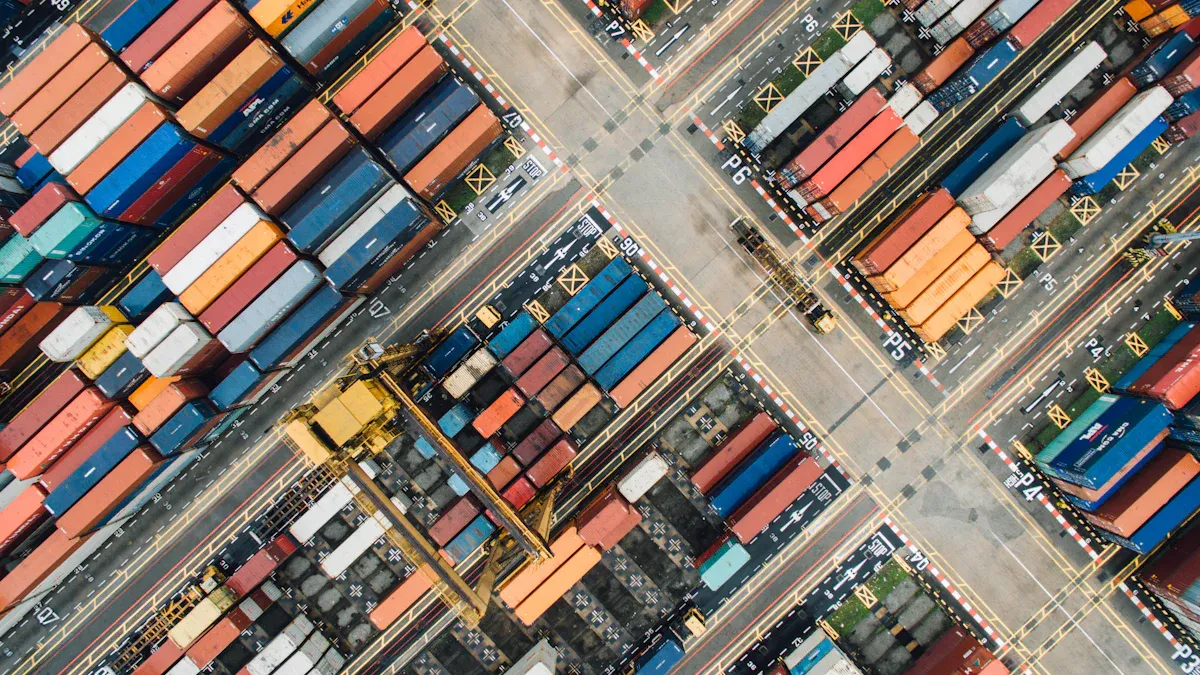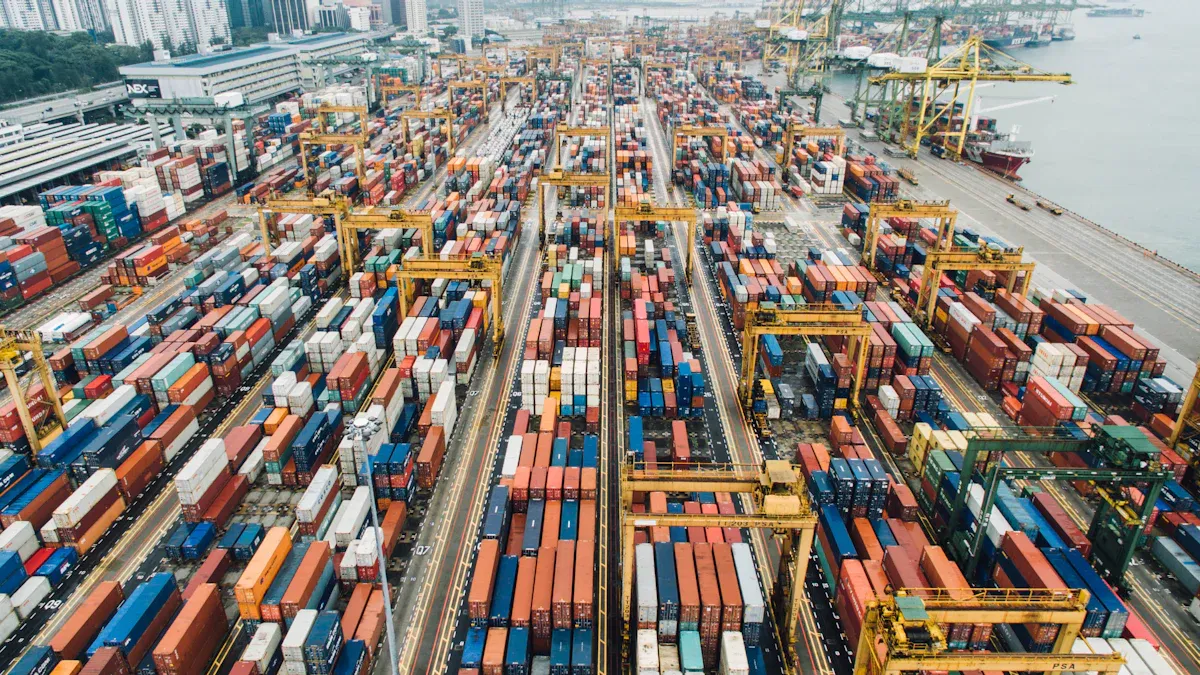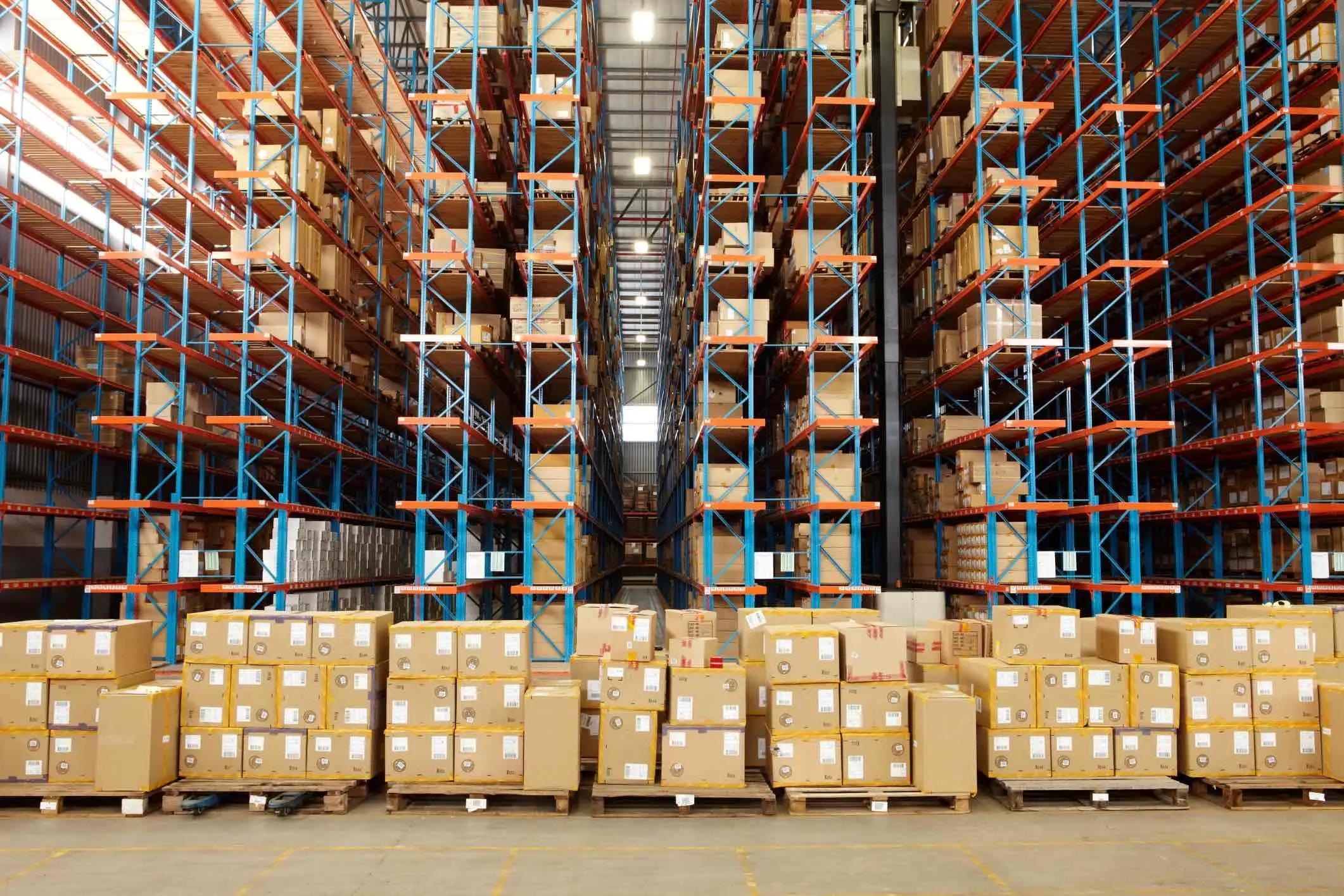International Logistics Industry Sees Rapid Change

The international logistics industry is changing very fast. This is because of new technology, more automation, and what customers want is changing.
Metric / Trend
Statistic / Projection
Year / Period
Global logistics market
2025
Automation CAGR
12.8%
Current
AI logistics market
$26.35 billion (2025)
2024-2034
International companies now have new problems and chances. Technology, changes in workers, and more global trade mean the industry must try new things. International businesses that change will stay strong in this global market. JUSDA is a leader by bringing new ideas to the logistics industry.
Key Takeaways
New technology like AI, automation, and real-time tracking is changing logistics. It helps make work faster, safer, and more efficient.
Global trade is growing. Customer needs are also changing. This makes companies use flexible supply chains. They must give clear and fast delivery. They also need to offer eco-friendly choices.
Logistics companies that use new ideas and care about the environment will do well. They will stay strong and lead the market as things change quickly.
Logistics Industry Drivers

Technology Advancements
New technology is changing logistics very quickly. Companies use IoT to make warehouses smarter and fix things before they break. Blockchain helps keep records safe and lets smart contracts work. Robotics and automation help workers make fewer mistakes and work faster. Drones and self-driving vehicles are making deliveries quicker and better. Real-time tracking lets customers see updates whenever they want. Many companies use AI and machine learning to plan and control inventory. More than 65% of logistics companies will use AI in at least one job by 2024. JUSDA leads by using JusLink’s AI and smart warehouse systems to work better and show clear results.
Globalization Impact
Globalization changes how the logistics industry works. Companies handle supply chains that go through many countries. Better trade rules, easier customs, and good transport help lower costs and grow trade. Digital trade and sharing data across borders connect the world more. Now, traded goods travel about 5,000 km on average. JUSDA helps global businesses by giving smooth logistics that link making, moving, and selling goods everywhere.
Consumer Demands
What customers want is changing logistics around the world. People want fast, easy, and clear delivery. Omnichannel logistics lets people shop online or in stores. Customers want to track their orders in real time and want green packaging and delivery. Companies use automation, AI, and big data to meet these needs. JUSDA gives real-time tracking, eco-friendly ways, and custom solutions for the world market.
Industry Challenges

Regulatory Complexity
International logistics companies deal with many rules. Every country has its own customs laws and paperwork. Companies must keep up with new trade agreements and data protection rules. If they miss a document or make a mistake, they can get fined or have goods taken away.
Companies need to:
Follow different customs rules in each country.
Make sure shipping documents are correct for checks.
Manage risks to stop losses during transport.
Use technology to check shipments and warn about risks.
Customs duties and tariffs make things harder. Tariffs can raise costs or make companies change suppliers. Sometimes, companies move production to other places. For example, the USMCA made car makers change their supply chains. Data protection laws like GDPR can mean big fines if rules are broken. Logistics companies also face legal problems, like unclear service deals or lost goods. To lower risks, many use technology and work with customs brokers and freight forwarders.
Supply Chain Disruptions
International supply chains often get disrupted. Labor shortages can stop trains and planes from moving goods. Wars, like Russia-Ukraine, block shipping routes and cause shortages. Higher fuel prices make truck shipping cost more. COVID-19 showed weak spots in supply chains and caused shortages of important parts.
Some main causes of recent supply chain problems are:
Not enough workers and possible strikes in rail and air.
Wars blocking important shipping paths.
Higher prices for fuel making truck delivery cost more.
Shortages of key parts because of pandemic shutdowns.
Cybersecurity threats and depending on only one supplier.
Aspect | Description | Financial Impact on Logistics and Related Sectors |
|---|---|---|
Problems raise transport and production costs. | More energy and transport costs lower profits. | |
Delays | Shortages and bottlenecks slow down shipments. | Longer wait times hurt service reliability. |
Inflation | Bottlenecks make prices go up. | Lower profits and higher prices for buyers. |
Credit Issues | More risks mean less credit. | Less money for growth and investment. |
Companies react by using more suppliers and storing extra goods. They also invest in better infrastructure. Flexible supply chain management helps them handle changes and lower the effects of problems.
Sustainability Pressures
International logistics companies must be more sustainable. Governments want companies to track and report emissions. Customers want green packaging and less pollution. Many partners expect companies to meet ESG standards.
Main sustainability pressures are:
Stricter environmental rules from governments.
Customers want clear and fair business practices.
Companies must meet emission goals set by others.
Working with suppliers to measure and improve sustainability.
Top logistics companies set public goals to cut greenhouse gases. They use global standards to track progress. They join groups and use shared technology to report emissions. These steps help companies follow rules and build trust with customers. They also help companies stay strong in the market. Long-term sustainability plans help companies handle future problems and changes in the economy.
Global Logistics Industry Opportunities
Market Expansion
The global logistics industry is growing fast. Companies see more demand in new places.
Asia Pacific is the top market. This is because of e-commerce, more people in cities, and government spending on roads and buildings.
Latin America and the Middle East & Africa are growing quickly. This is because more people use digital tools and there is more money for roads and buildings.
Road transportation is still used a lot. It is flexible and good for last-mile delivery.
Waterway transport is getting more popular. It is cheaper for moving big shipments.
Hyperlocal warehouses in cities and towns help with fast delivery and quick-commerce.
International trade agreements, like USMCA, help companies by lowering tariffs and making customs easier. Companies that use smart warehouses and real-time tracking do better in the global market. JUSDA’s warehouse solutions help businesses grow in new places with safe storage and fast delivery.
Efficiency Gains
Being efficient is very important in global logistics. Companies use AI and automation to work faster and save money.
AI helps fleets use less fuel and not waste time.
AI helps keep the right amount of inventory.
Predictive analytics help plan for demand and deliveries.
Robots in warehouses save money and speed up orders.
JUSDA’s JusLink AI platform gives these benefits to supply chains. It helps companies control inventory, see risks, and track shipments in real time. These tools make logistics work better and help companies react to changes in the market.
Green Logistics Innovation
Sustainability is a big chance in international logistics. Top companies use electric vehicles, new fuels, and better routes to lower emissions.
Green packaging and recycling help cut down on waste.
Energy-saving warehouses cost less and help the environment.
Real-time emissions checks and digital tools help companies follow rules and show progress.
JUSDA’s warehouse network uses energy-saving designs and automation for green logistics. JusLink AI helps plan better routes and use resources well, making work greener. Companies that use green logistics get a better brand image and more trust in the global market.
Adapting in Global Logistics
Technology Adoption
International logistics companies need to use new technology to keep up. They look for ways digital tools can help their work. Many companies make clear plans for using digital tools. Teams work together and help workers learn new things fast. Companies buy IoT for tracking shipments in real time. They use AI to study data and cloud computing for storing lots of information. Automation and blockchain help work go faster and make things clearer. Security is very important, so companies use strong passwords and controls. Training helps workers feel better about changes. JUSDA’s JusLink platform shows how digital tools can do jobs automatically, lower mistakes, and give updates on shipments.
Flexible Supply Chains
Flexible supply chains help companies deal with problems. Companies use many suppliers and routes to lower risks. They build warehouses close to important markets. This saves money and makes delivery faster. Many companies now keep extra inventory just in case. AI and data tools help make better choices and manage risks. JUSDA’s network and digital tools help companies change plans quickly. Flexible supply chains help companies stay strong and work well during hard times.
Customer-Centric Solutions
Logistics companies focus on what customers want. They give real-time tracking and clear updates. Customers can check shipments online or on their phones. Good support and honest talk help build trust. JUSDA’s stories show how digital tools make customers happier by stopping delays and mistakes. Companies ask for feedback to get better and use data to know what customers like. These actions turn happy customers into fans and help business relationships grow.

JUSDA Solutions
To provide you with professional solutions and quotations.
The international logistics industry is changing fast. Companies that change quickly become leaders in the world market.
New ideas and using technology help companies grow worldwide.
Working with partners like JUSDA helps companies stay strong.
Top companies use AI, automation, and data to get better.
Fast changes around the world give new chances to lead and grow.
Companies that act now will help decide how international logistics works in the future.
See Also
How Artificial Intelligence Is Transforming Future Supply Chains
Innovative Supply Chain Strategies Changing The Logistics Industry
Understanding Emerging Trends In Logistics Risk Management
Digital Technologies Shaping The Future Of Logistics Operations
Addressing Global Challenges In Expanding Supply Chain Networks
